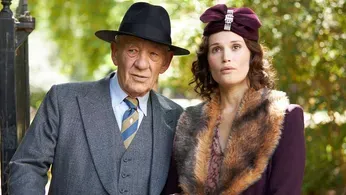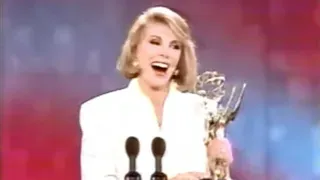
September 11, 2024
Review: Ian McKellen, Gemma Arterton Shine in Savage Saga of Betrayals, 'The Critic'
Karin McKie READ TIME: 2 MIN.
Academy Award nominee Patrick Marber adapts Anthony Quinn's 2015 novel "Curtain Call" into the psychological thriller "The Critic" (in theaters September 13). Under the direction of Anand Tucker, Sir Ian McKellen (another Oscar nominee) brings his fiercely droll assurance to the character of Jimmy Erskine, a seasoned, powerful, and manipulative theater reviewer in 1930s London.
Erskine relishes in panning plays and tormenting struggling (yet prominent) actresses like Nina Land (played by a vibrant Gemma Arterton). While he's careful to control the narrative in other people's lives, he's reckless with his own, letting his illegal homosexual relationship with his young "squire," Tom Turner (an earnest Alfred Enoch) literally spill onto the streets.
David Brooke (a terse and controlled Mark Strong), his editor at The Chronicle, the "most-read family newspaper in the country," is tired of trying to tame Erskine's prolific poison pen. The scribe hasn't responded to previous attempts to "tone it down, the unpleasantness, the extravagance, the extremity of your style." Brooke has also asked Erskine to "be kinder, more Beauty and less Beast," a final warning to no avail. So, the well-heeled boss seizes on Erskine's potential sex scandal to fire his senior writer.
To reclaim that prominent position (and the related perks of exclusive parties, top-shelf beverages, and fine victuals at cordoned-off restaurant tables), Erskine coerces Nina to enact a blackmail plot. Previously, she had followed him to confront him in person over a scathing, career-altering review, which was "ruthless to me, as if you've been betrayed." After that in-person encounter, the pair develop an oddball mentoring relationship; reading Erskine's decades of theatrical critiques "formed me," Nina admits. She's also curious to pose all the probing questions that actors want to ask critics directly.
Corrupted and cruel love triangles of influence and pain ensue. Erskine sums up his predicament by quoting Jacobean dramatist John Webster, saying, "My soul, like to a ship in a black storm, is driven, I know not whither."
The 90-minute narrative starts slowly and then builds as each individual's stakes are raised. The first half of the story is given time to breathe, but the consequences are rushed at the end in order to wrap up spiraling, interconnected plotlines of betrayal. What starts as a commentary on the role of art and artists in culture, especially on the cusp of a world war, unravels into somewhat improbable trysts and traps. This critic agrees with that critic: Less is more.
"The Critic" debuts in theaters on September 13.
Karin McKie is a writer, educator and activist at KarinMcKie.com







